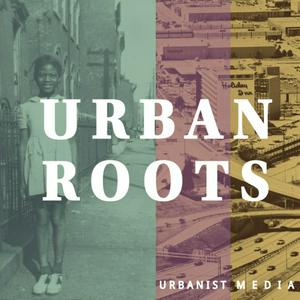In this episode of the Urban Roots podcast, host Deqah Hussein-Wetzel sits down with two accomplished Cincinnati-based Black architects—David Kirk, President and CEO of DNK Architects, and Michael Burson, a longtime (now retired) architect who has worked extensively with Cincinnati Public Schools, and now serves as an owners representative for local architectural projects ---including the Robert O’Neal Multicultural Arts Center’s (ROMAC) rehabilitation of the Regal Theatre in Cincinnati’s West End neighborhood. Guests David and Michael expand on how and why they fell in love with the profession and what the road to licensing looked like for both of them. In a field where only 2.8% of licensed architects are African American, Michael and David are the definition of architects who opened doors. Being that Deqah worked closely with David and Michael to preserve the Regal Theatre and help Toilynn O’Neal Turner’s vision of the ROMAC take shape, this episode also celebrates our shared success in securing BOTH Federal & State Historic Tax Credits, which supports monetary funding for the project! If you don’t remember what the Regal Theatre is all about, you can go back to Juneteenth Cincinnati Short to learn more about the building's rich African American history.PS: On Saturday, March 29th, Deqah is moderating a 9 AM panel discussion with panelists Michael, David, and Toilynn at the 2025 Invest in Neighborhoods Summit titled, Rehabbing the Regal: Community-Driven Approaches to Black Cultural Preservation and Neighborhood RedevelopmentAnd a huge thanks to our episode sponsor, Hub+Weber, for helping us continue to promote equity in the built environment. Hub+Weber is a Cincinnati-based architecture firm founded in 1973 that does more than renderings and construction documents — they are creative problem solvers who understand that each project is more than just a building to their clients. Founded in 1973, this architecture firm has has a long legacy in Cincinnati’s built environment. Urbanist Media thanks Hub+Weber for their continued support and for sharing our values in promoting equity within the built environment.Thank you to guests David Kirk and Michael Burson, and sponsors, Hub+Weber, who helped make this episode possible. This podcast is brought to you by Urbanist Media and is hosted by Deqah Hussein-Wetzel. Editing by Deqah, Connor Lynch, and Skyler Ficklin. Mixing by Connor Lynch. Our music is by Adaam James Levin-Areddy. Urban Roots is brought to you by Urbanist Media, a non-profit that preserves place through story. You can make a tax-deductible donation to us via Venmo or Paypal. Follow us on IG at urbanrootsculture. Drop us an email
[email protected]
